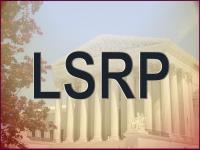In 2009, the New Jersey Site Remediation Reform Act (SRRA) was signed into law. This Act significantly changed the Site Remediation Program (SRP) by establishing a Licensed Site Remediation Professional (LSRP) to issue a final remediation determination letter known as the Response Action Outcome (RAO) for the site. LSRPs are now in charge of the investigation and remediation of releases of hazardous substances into the environment.
Under the SRRA, the New Jersey Department of Environmental Protection (NJDEP) no longer oversees site remediation, instead, LSRPs are responsible for completing site remediation while adhering to a strict code of conduct and ethics and complying with new rules and guidance documents. Before the SRRA, the NJDEP issued a final No Further Action (NFA) letter to a site that was under the NJDEP’s Case Manager’s review.
Except for New Jersey unregulated heating oil tank (UHOT) and U.S. EPA’s RCRA, CERCLA, and Federal facilities projects, SRRA requires Responsible Party or Entity (i.e., owners or operators) of the contaminated site must hire an LSPR (ARRCS Rule) to conduct the remediation and obtain a final RAO determination from an LSRP. The LSRP and property owner take on the obligation to restore and maintain conditions to protect public health and safety.
As per this Act, by May 7, 2014, the Remedial Investigation (RI) phase must be completed for all contaminated sites where remediation should have been initiated on or before May 7, 1999.
The EGS’s LSRP team specializes in NJDEP regulatory compliance can assist clients in resolving either an Area of Concern (AOC) and/or entire site case issues, and obtaining an RAO determination.
